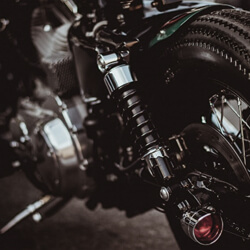Nonfiction:
I can sit on my motorcycle, rumbling down Coast Highway 101, following my front tire to Seaside. As long as there is road, sometimes it isn’t possible to discover a reason to stop.
Clustered memories can explode into other years and other roads, where I didn’t know what the horizon was hiding. Each revealed plain offered a new mystery to unravel, a different place to wonder about.
It’s all about the seeking when the finding leads to more seeking, building an atlas of memory that will sustain the stories that help define my life. I can see from 101 to Burns, from Burns to Elko, from Elko to Whitefish, from Whitefish to Revelstoke, from Revelstoke to Port Angeles, place to place all over western North America.
These are selfish memories. It’s just me on the iron magic carpet. The thunder on which I ride is a mantra that frees my heart to love the world. The gratitude runs through me, buoys me, and renders me a comet of hope burning across the heavens of my everyday routine.
Coast Highway gets me where I need to be, where I used to perform my due diligence so my family would have shelter, warmth, food, and peace. The gratitude for that more than equals the wild freedom I’ve enjoyed and keeps me snug and free of having to master urban camping.
I remember not knowing where dinner was. I knew it was somewhere until it became breakfast, then lunch, and then dinner again. Going to sleep hungry, even during my direst youthful economics, was not terribly common for me, but it happened. For many in our community here on Oregon’s north coast, it is still a daily travail. I’m glad I no longer have to experience that. My situation allows me the ease of knowing where dinner is, AND breakfast, AND lunch. I’m awake. I’m intelligent. I’m fortunate.
My motorcycle is a luxury. To more than eighty[1] percent of the humans on our planet, I live a luxurious life. When I go to Mexico I am perceived as a wealthy gringo. If I travel to La Jolla, my collar is perceived as blue. Sometimes, it’s like my very skin is the only disguise I need. It offers me the white privilege of being fairly safe most anywhere I go. Money in my pocket has nothing to do with it. But even mostly blending in, humans will still label me. It’s a leftover survival mechanism. People of color, in neighborhoods where they are the exception rather than the rule, know this very well.
It’s all relative, isn’t it? I am staunchly middle-middle class here in America. To a starving Somali family or a homeless person anywhere, I am rich beyond comprehension. I become the stereotypical ugly American. Do I deserve that? Depends on who’s looking. In my own mind I am a kind man who cares greatly for the vibrant cultures all over the world. But that caring is not universally perceived. At the bottom line, I really can’t alter the perceptions that follow me wherever I go. Each destination becomes new beginning. All I can do is accept the scrutiny, try to understand each, and move through my own life sharing positive energy as best I can. Sometimes, that will be with a rumbling wind in my face.
Jim Stewart was born in Chicago and lived in Buffalo, New York, New England and Southern California before moving to Oregon where he has spent the last five decades. He has worked as a musician, truck driver, laborer, mechanic (of both vehicles and musical instruments), house painter, business owner, salesman and, through it all, a writer and poet.


